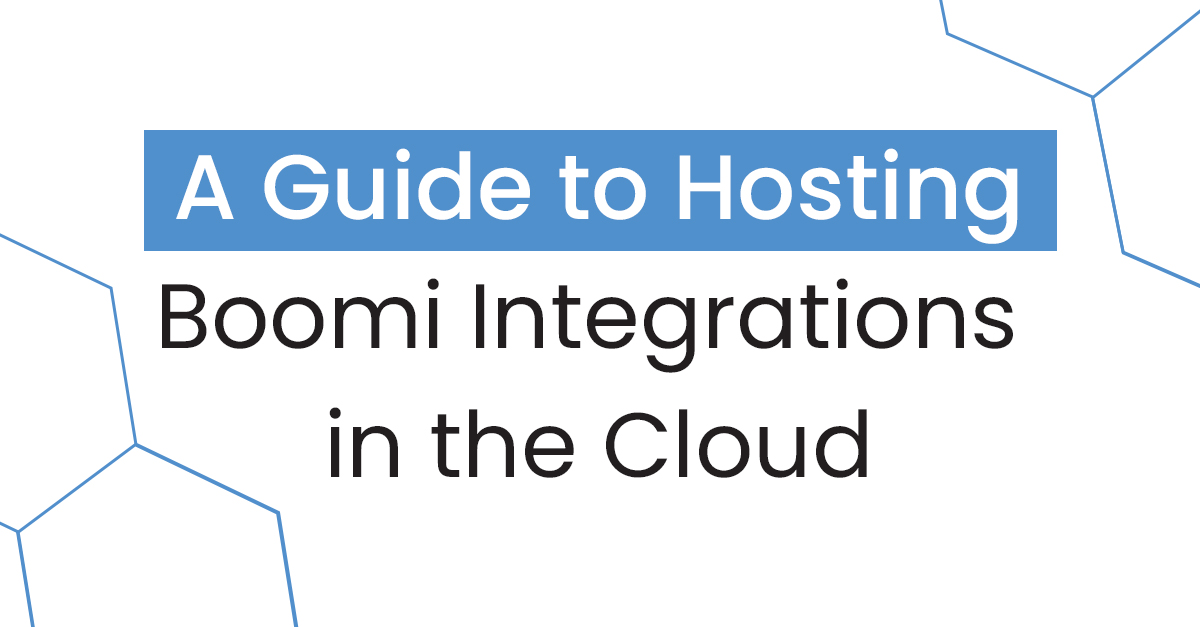Atturra has acquired Kitepipe, a Boomi platinum partner. Read the press release here.
Atturra has acquired Kitepipe, a Boomi platinum partner. Read the press release here.

IT professionals who work with integration platform as a service (iPaaS) solutions, often manage complex integration tasks within constrained resources. Larry Cone, Founder and CEO of Kitepipe, captures this challenge succinctly:
“Complexity is increasing because integration is important, whether it's HR, sales, procurement, omnichannel, you've got to do integration. Everyone has IT resource limitations, both funding and people, but business expectations continue to grow. So how can you do more with less in the integration space?”
There is a critical need for efficient and scalable solutions in the integration space. In this blog, we explore how hosting your iPaaS solution, Boomi, in the cloud addresses these challenges, offering a path to greater efficiency and effectiveness in integration processes. For those new to Boomi hosting, our previous blog, Boomi Hosting Services for Beginners: Tips for Getting Started, is a valuable resource for foundational understanding.
Integration is no longer a luxury but a necessity for achieving a cohesive and efficient operational environment. Selecting an iPaaS like Boomi is a strategic decision for businesses aiming to streamline their integration processes amidst diverse applications, systems, and data sources.
At our recent webinar, Solutions Manager at Boomi, Jake Brobst, says “The Boomi platform is secure, scalable, self-managing, and the different ways that we're able to host, whether that's on-prem in the Boomi cloud or public cloud or on private cloud.” Boomi stands out in this crowded iPaaS space by offering a comprehensive, unified platform that simplifies the creation, deployment, and management of integrations.
This capability is crucial for organizations looking to enhance their operational efficiency, facilitate data sharing across different systems, and accelerate digital transformation initiatives. By leveraging an iPaaS like Boomi, businesses can overcome the challenges associated with traditional integration methods, which are often time-consuming, error-prone, and difficult to scale.
With this context in mind, hosting Boomi in the cloud further amplifies these benefits, providing a flexible, scalable, and efficient environment that supports the dynamic needs of modern businesses. Making the switch to cloud hosting can be challenging, which is where a Boomi integration services team like Kitepipe comes into play.
Migrating to the cloud can be challenging. There are many Boomi integration services to evaluate when moving Boomi integrations to the cloud. The cloud hosting model you select should offer many advantages to your business. For example, Kitepipe’s Boomi hosting services provide five key advantages:
Prioritize finding a model that enhances Boomi's inherent advantages, allowing organizations to leverage cloud-specific features such as elasticity, high availability, and cost-effectiveness, thereby optimizing their integration strategies and achieving better outcomes.
As organizations consider migrating their operations to the cloud, questions regarding the compatibility of cloud-hosted integration platforms with existing IT infrastructure, security protocols, and mixed environments of on-premises and cloud endpoints arise.
In our recent webinar focused on hosting Boomi in the cloud, we engaged directly with participants to address these queries. This interactive session provided valuable insights into how businesses can leverage cloud-hosted Boomi solutions to enhance their integration capabilities while maintaining alignment with their existing IT frameworks. Below, we share two questions that emerged during the webinar, offering detailed answers that shed light on the operational, technical, and strategic considerations of moving to a cloud-hosted integration environment.
Q: If I have a mix of on-prem and cloud endpoints, can I still use a hosted solution like Kitepipe's?
A: Nothing changes in terms of how you look at and manage your Boomi account except where it's running. On top of that, we put a best of breed Datadog monitoring suite. So we're monitoring the infrastructure monitoring Boomi and also the Boomi processes as well. And lastly, a Terraform scripting approach. What we found is for a quick accurate build and to maintain that build, having a scripted build in the cloud is really key.
Q: Does a hosted Boomi runtime and account still work with our active directory authentication structure and single sign on?
A: Yes, it does. So even though your Boomi runtime, the atom or molecule is running hosted in the cloud, it doesn't change your Boomi account at all. So whatever tools you're using to log in to control single sign-on the connected active directory or Okta, all of that access control you've got in place still works just the same. The only thing that's changed is where that Boomi runtime is running.
Watch the full webinar here.
© 2024 Copyright Kitepipe, LP. ALL RIGHTS RESERVED.